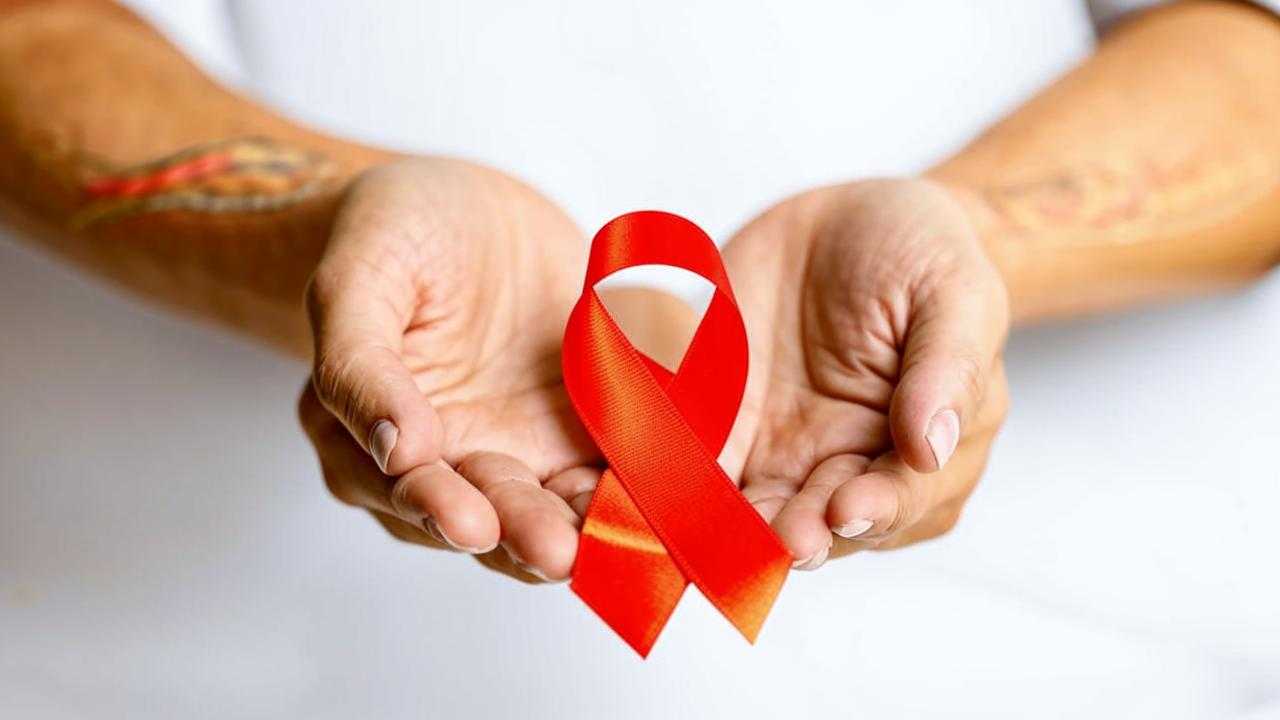Acquired immunodeficiency syndrome (AIDS) is the last stage of HIV infection. The body’s ability to resist infections and diseases is rapidly declining, which affects organs and systems. Until recently, implantation in HIV was considered impossible. The emergence of one-stage minimally invasive techniques has made it possible to implant implants in people with severe chronic pathologies, including HIV and AIDS. Even patients diagnosed with immunodeficiency or hepatitis can be successfully implanted with the RUTT implant.
Whether implants can be used with HIV
The human immunodeficiency virus (HIV) gradually destroys the immune system, using its resources to replicate new viral particles. At a certain point, the body’s resistance decreases to a critical point. An HIV-infected patient develops severe diseases that are rare in people with normal immunity. These are called opportunistic or AIDS-associated diseases.
Implantation is a surgical intervention that requires forces for tissue healing and resistance to bacterial processes in the oral cavity. In immunodeficiency conditions, the probability of postoperative complications, rejection of the artificial root increases.
Not so long ago, HIV infection was a contraindication to implant placement. With the advent of one-stage techniques, the list of contraindications has been reduced – immunodeficiency is no longer an obstacle to surgery.
In what cases implantation is possible
Preparation for implantation involves a comprehensive examination, including a number of blood tests, including CD4-lymphocyte count and viral load. These are two tests that determine how many copies of HIV are in the patient’s blood and the state of the immune system.
Implantation is performed when the CD4 cell count is relatively high and there are no unfavorable symptoms.
- If the CD4-lymphocyte count is greater than 500, the risk of complications is the same as in patients without immunodeficiency.
- If the CD4-cell count is 450-400, there is an increased chance of implant rejection, but surgery can be done.
- At a level of 300 and below, surgery is postponed, antiretroviral therapy is continued until stable values are achieved.
The doctor plans treatment on an individual basis. It is possible that he will recommend retesting or waiting with the operation until the indicators are restored to normal levels.
In which cases it is not possible to place dental implants
If the level of CD4-lymphocytes is below 350 implantation is not carried out. Immunodeficiency states are accompanied by a violation of tissue regeneration. With a sharply reduced IC, there is a high risk of fungal and bacterial microflora sprouting along the implant. I.e. the probability of peri-implantitis, implant rejection increases.
If the patient, in addition to HIV infection, has additional diseases related to contraindications, installation of implants becomes impossible.
With pathologies included in the list of relative contraindications, the operation is postponed for a more favorable period.
Absolute contraindications
- Decompensated diabetes mellitus;
- severe cardiovascular pathologies;
- open form of tuberculosis;
- diseases of blood and hematopoiesis;
- oncology;
- condition after radiation, chemotherapy;
- allergy to anesthesia;
- systemic pathologies (lupus erythematosus, aphthous stomatitis, etc.);
- certain CNS diseases (neuroses, psychoses, dementia, schizophrenia, paranoia);
- severe forms of hypo- and hyperthyroidism, adrenal and pituitary pathologies;
- connective tissue lesions with manifestations in the maxillofacial zone;
- bone tissue pathologies (dysplasias, osteopathy, osteoporosis, osteonecrosis);
- metal intolerance.
Relative contraindications
- Diseases of the temporomandibular joint;
- increased erosion of tooth enamel;
- bite abnormalities;
- arthrozoatritis;
- صريف الأسنان;
- smoking abuse;
- past drug use;
- venereal diseases;
- un-sanitized oral cavity – caries, gingivitis, periodontitis, periodontal disease;
- poor oral hygiene;
- pregnancy, lactation.
Whether HIV status alone can always lead to implant failures
Rejection of dental implants هو possible due to various reasons, the HIV status of the patient is in the penultimate place. The main causes of artificial root rejection are:
- Medical error (unprofessionalism of the implantologist) – incorrect calculation of the place where the titanium root should be implanted, incorrect installation of the implant relative to the level of the alveolar ridge.
- Poor-quality implant system – the quality of the material from which the artificial root is made depends on the process of osseointegration. Since tissue regeneration is reduced in immunodeficiency, the quality of the implant is of paramount importance for its normal fusion with the bone.
- Non-compliance with the doctor’s recommendations regarding postoperative care, on the part of the HIV-infected patient. With poor hygiene the risk of peri-implantitis and titanium root rejection increases 5-7 times.
- Exacerbation of HIV disease – the immune system does not cope with its duties, medications are almost ineffective, postoperative wounds heal poorly, inflammation develops in the implantation area, the implant begins to reject.
The risk of infection or rejection is also present in healthy patients. But it is higher in immunodeficiency. Difficulties are possible at any stage of treatment. It is not necessary to plan implantation of implants in HIV infection with complications – because of the risk of undesirable consequences.
Methods of implantation – are they all suitable?
When applying the classic two-stage protocol, the probability of implantation of an artificial root is low, due to the traumatic nature of the intervention. A weak immune system will not cope with the healing of the wound after the implantation procedure, repeated incision for the fixation of the crown. Therefore, the method of choice is basal implantation.
- The technology involves the installation of a titanium root through a gingival micropuncture with immediate loading with a prosthesis. The operation is performed in one stage, the implant root and abutment are a single structure.
- The use of special models of implants, implanted in deep bone layers, not subject to inflammation, atrophic processes, give high primary stability and rapid osseointegration.
- In the lateral zones, titanium roots are implanted at an angle, bypassing the sinuses, nerve plexuses, large blood vessels.
- Installation of basal implants is the best option for severe chronic pathologies, including immunodeficiency, hepatitis.
Minimally invasive surgery does not involve gingival incision, bone drilling and suturing. Post-operative rehabilitation is fast, with minimal discomfort for the patient.
ROOTT Clinic is one of the few dental centers in Russia, specializing in methods of dental implantation with immediate loading. Our doctors have been working with the basal protocol for many years. Thanks to the combination of protocols in one design, we restore teeth in record time even in patients with an aggravated anamnesis.
ROOTT dental implants are the best choice for HIV patients
ROOTT implants are made of biocompatible titanium with an antimicrobial surface. When the package is opened, the titanium reacts with oxygen to form a hydroxyapatite film on the implant surface. Hydroxyapatite is the element that makes up bone tissue. This increases the chance that the jawbone will not reject the titanium root. The polished surface prevents bacterial plaque buildup in the neck area, which minimizes the risk of peri-implantitis.
Post-operative recommendations
After implantation, the doctor’s recommendations for oral care should be scrupulously followed immediately after the intervention and beyond. This applies to all patients, but HIV-positive patients need to follow the doctor’s instructions particularly closely. Post-intervention recommendations include:
- oral care;
- lifestyle changes;
- service at the clinic.
Oral care
- Brush teeth twice a day, paying attention to the spaces between teeth;
- Floss;
- Rinse your mouth every time after eating;
- Avoid hard foods (nuts, marshmallows);
- visit the dentist every 6 months for a professional hygienic cleaning.
In the early postoperative period (7-10 days), mouth antiseptic baths are given after meals.
General recommendations after surgery
- Limit sports, physical activity for a month;
- avoid hypothermia or overheating;
- refuse alcohol, tobacco smoking for at least a month;
- no air travel for 10-14 days;
- careful sneezing, coughing, blowing your nose, especially if the implantation was done on the upper jaw;
- do not miss preventive check-ups with the dentist.
After implants are placed, the doctor will prescribe a short course of antibiotic therapy. Supporting normal CD-4 cell levels is important, so antiretroviral therapy (if prescribed) should not be ignored.
Can the doctor refuse implantation
Refusal is possible in the following situations:
- The implantologist does not know modern treatment protocols, considers HIV an absolute contraindication to implant prosthetics.
- The doctor is afraid of infection because he or she will have to come into contact with the patient’s blood.
- CD4 cell count is too low.
- For medical reasons (in addition to immunodeficiency, there are a number of complications).
A positive HIV status is not a reason to deny medical care. According to Article 124 of the Criminal Code of the Russian Federation, a doctor who shirks his duties without a valid reason is liable, up to the restriction of freedom.
Is it worth hiding your status
According to the laws of the Russian Federation, the patient is obliged to warn the doctor about his HIV status. In any case, it is better not to hide such information. The doctor carries out treatment according to the general state of health – selects a treatment protocol, implantation design, effective antibiotic therapy.
Suppose the implantologist does not know about the positive HIV status and prescribes antibiotics in the dosage as for a healthy patient. Such therapy will not have the proper effect, which will lead to inflammation, peri-implantitis, as a consequence – rejection of the artificial root. The doctor is obliged to know about the possible risks. Health information helps to select a treatment regimen with the best outcome for the patient.
Since immunodeficiency conditions are included in the list of restrictions to implantation, HIV testing is part of the comprehensive diagnosis. Therefore, hiding HIV status from the dentist is problematic.
Alternatives
If implantation is not possible, the patient is offered alternative options:
- Dental bridges – a reliable method of prosthetics, but requires depulping and grinding of healthy teeth that act as a support for the prosthetic structure.
- Removable dentures are the simplest method of restoring teeth. However, it has disadvantages. It does not stop bone atrophy and restores chewing function by 60%. Removable dentures cannot be used in the presence of opportunistic oral diseases (aphthous stomatitis, exfoliative cheilitis, Kaposi’s sarcoma, etc.).
- Mini-implants – characterized by rapid engraftment, securely fix removable prosthesis in the mouth, but can not withstand increased loads during chewing.
ROOTT implantologists recommend mini-implants and removable prosthetics as a temporary solution during antiretroviral therapy. When stable CD4 cell counts and an undetectable viral load are achieved, basal implantation is performed.
Can you get infected during implantation
The risk of infection when performing procedures in dentistry is zero, since implantation is performed under conditions of complete sterility. Anti-epidemic measures are carried out in accordance with the rules, regulations and orders of the Ministry of Health of the Russian Federation. Sterilization in the RUTT Clinic is carried out according to the “Anti-AIDS-Anti-Hepatitis” program, regardless of the type of treatment performed. The sterilization and treatment process includes three stages:
- Disinfection – removal of contaminants, treatment of instruments in antiseptic solution for 30-60 min.
- Pre-sterilization treatment – rinsing, ultrasonic cleaning, azopyram test, placing instruments in disposable hermetic bags;
- Sterilization – processed and packaged instruments are sterilized in autoclave, high pressure water steam.
Sterile instruments are stored in a germicidal cabinet. Autoclaving of instruments and materials is the most reliable method of sterilization in dentistry. After each dental procedure, the office is sterilized by quartzing.
Disposable consumables are used (sterile gloves, masks, wipes, single-purpose instruments), which are disposed of after use.
The factory package with the implantation structure, the package with sterile instruments are opened in the presence of the patient.

